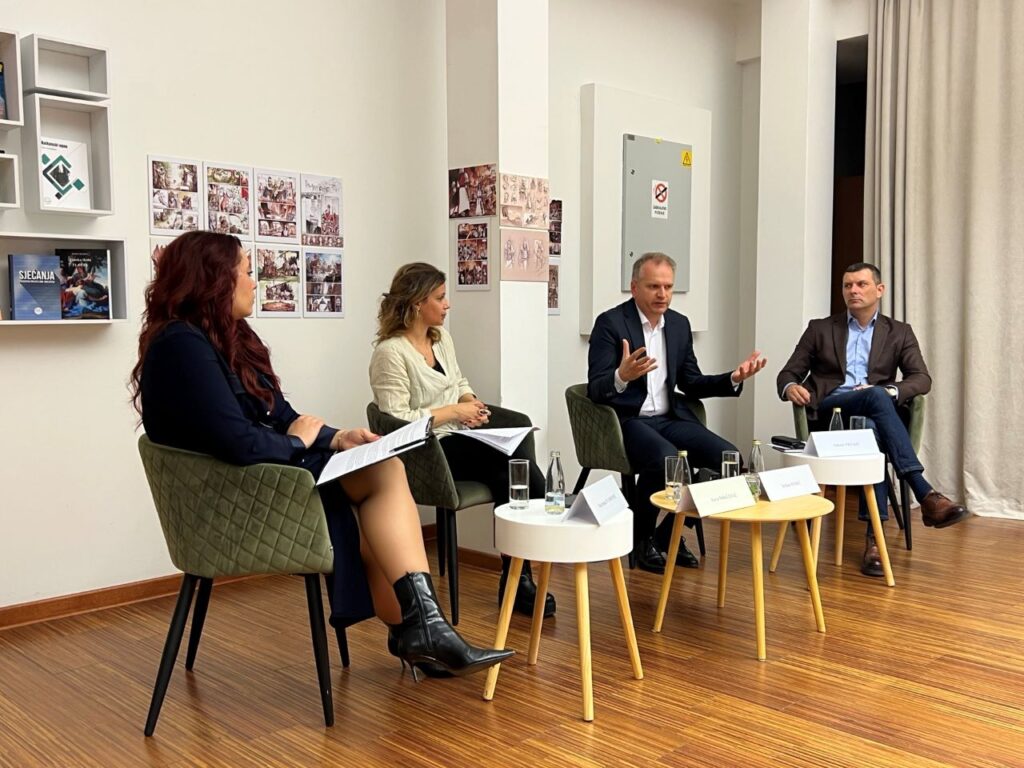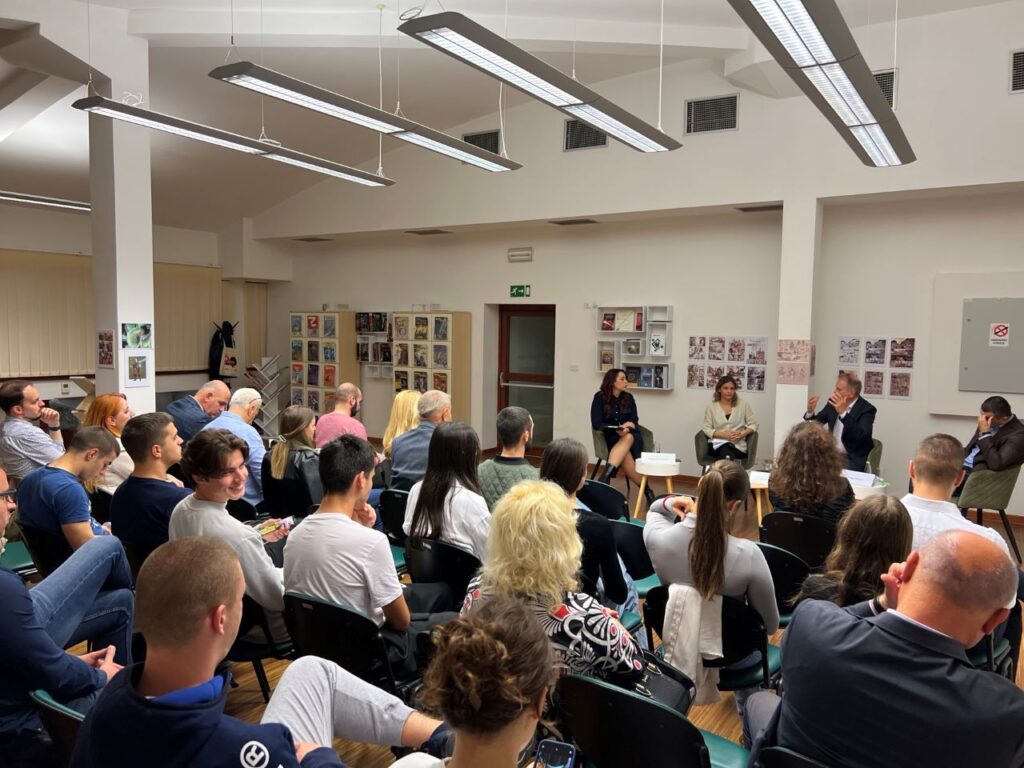“Investing in an educational system that fosters critical thinking is crucial. This would help bring young voters—not political fanatics—back to the political scene and dismantle the shackles of conservatism, traditionalism, and patriarchy,” was one of the messages shared during last night’s public forum on intercultural development across various municipalities in Montenegro, organized by the Centre for Civic Education (CCE) at the “Radosav Ljumović” Public Library in Podgorica.
Sara Nikčević, Advisor to the President of the Capital City Assembly, Srđan Perić, President and co-founder of the Preokret movement, and Adnan Prekić, historian and professor at the Faculty of Philosophy of the University of Montenegro, shared their views and opinions regarding the past, present, and future development of the situation related to interculturalism and multiculturalism in Montenegro.
“Multiculturalism is an extremely important social category that faces challenges, as we live in a specific social context with different dynamics and processes. I see multiculturalism as a value and a prerequisite for coordinated action by institutions, which is not easy to achieve in our country, but I believe it can be realized,” said Sara Nikčević, reflecting on the positioning of multiculturalism today in Montenegro. She emphasized that young people are the most obvious target group for work and an underutilized potential, and that it is necessary to implement programmes within educational institutions that focus on this topic.
Srđan Perić believes that conservatism, traditionalism, and patriarchy in our society are among the main causes of ethnic distance, as well as multiple discrimination. “It is not problematic for someone to have a strong sense of national identity. But the moment you start seeing yourself as threatened or superior to others, that is when problems arise. When you have an environment in a small community where such strong impulses fundamentally divide and destroy the community, society becomes open to a permanent division and a kind of entrenchment. The consequence of this disbanded community is exactly what is happening— that we do not mix with each other,” he explains. “The political elite’s insincerity leads to individuals who, first and foremost, do not understand themselves, nor they understand the world around them. Without understanding the internal and external, others are seen as adversaries rather than dialogue partner” notes Perić.
Dr. Adnan Prekić pointed out that Montenegrin society has a significant tradition of multicultural life, but that the political approach of homogenizing its own electorate, which is always based on the “us or them” lines, among decision-makers is crucial in undermining this tradition, among other things. “I grew up in a multicultural and multi-confessional environment. No one ever taught us to respect someone of a different faith; those things were taken for granted. In that relationship, I believe there is no moment to open that process and teach people to live next to each other and with each other, it is more about setting an example and establishing a model that enables this coexistence,” Prekić emphasized.
The forum brought together about 30 participants from various sectors, aiming to strengthen dialogue and exchange perspectives among institutions, civil society, media, and citizens to address the key challenges and needs in developing interculturalism within their communities.
The forum is part of the project “Harmony in Diversity,” which the CCE implements with the support of the Ministry of Human and Minority Rights.
Ivana Matanović, Project Assistant


